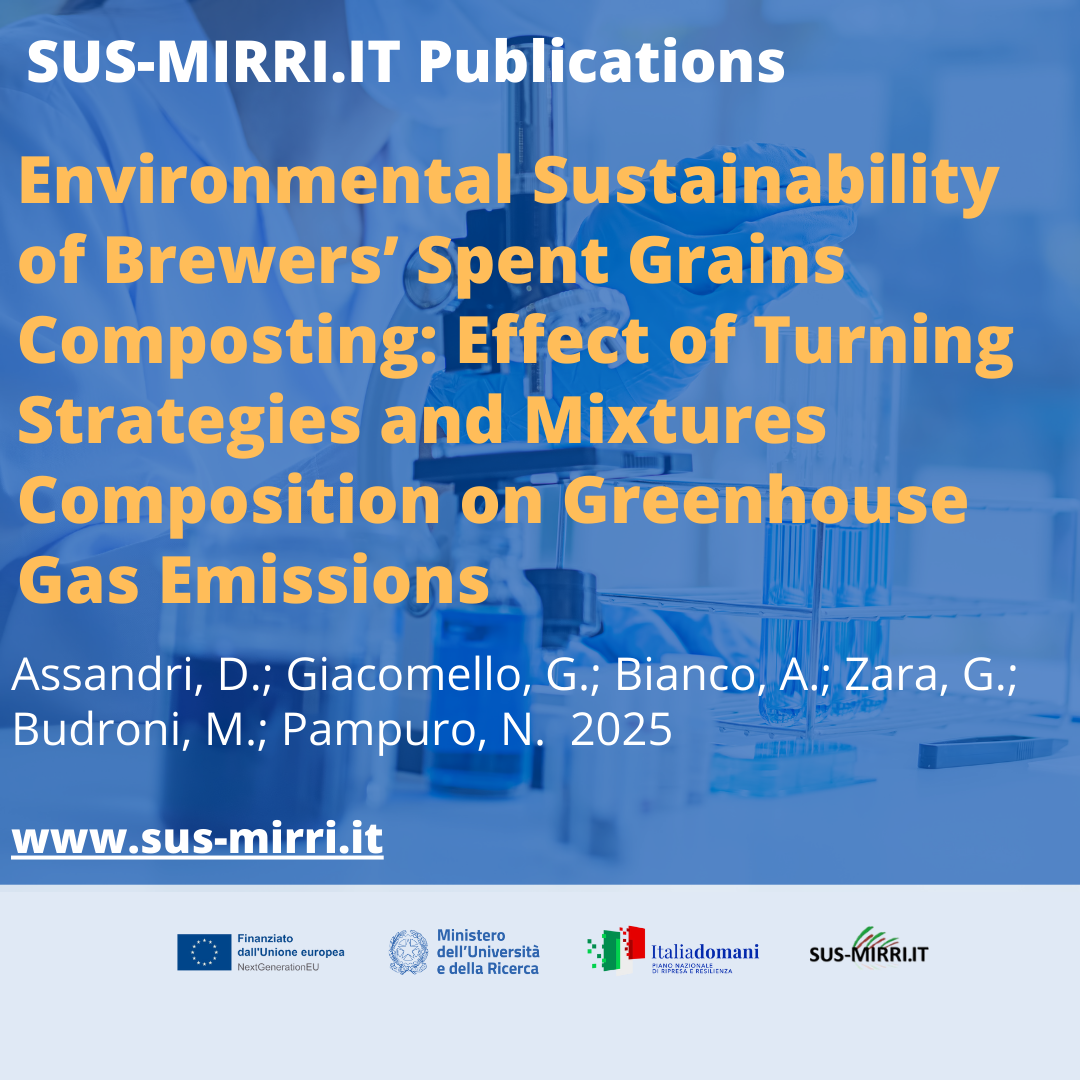Assandri, D.; Giacomello, G.; Bianco, A.; Zara, G.; Budroni, M.; Pampuro, N. 2025 Environmental Sustainability of Brewers’ Spent Grains Composting: Effect of Turning Strategies and Mixtures Composition on Greenhouse Gas Emissions. Agronomy 15, 771. https://doi.org/10.3390/agronomy15040771
Abstract
The global production of brewers’ spent grains (BSG) is 37 million tons yearly. Composting represents an eco-friendly method to manage and valorize organic by-products in a circular economy model. This project aims to compare two BSG bin-composting mixtures (BSG and wheat straw with pig slurry solid fraction, MIX1, or sheep manure, MIX2) and approaches (manual turning, MT, and static composting, ST). The two mixtures’ physicochemical characteristics and greenhouse gas (GHG) emissions were assessed during the process. The evolution of physicochemical properties is reported in detail. Headspace samples of GHG emissions were collected and analyzed with gas chromatography coupled with specific detectors. Carbon dioxide (CO2) emissions were 34.3 ± 0.03 and 31.0 ± 0.06 g C kg−1 fresh matter (FM) for MIX1-MT and MIX2-MT, and 28.8 ± 0.01 and 31.2 ± 0.02 g Ckg−1 FM for MIX1-ST and MIX2-ST. Methane emissions were negligible (all conditions < 0.086 ± 0.00 mg C kg−1 FM). Nitrous oxide (N2O) emissions from composting are affected by the substrate, bulking material, pile dimension, and manure. Particularly, the total emissions of N2O, estimated as CO2 equivalents, were 45.8 ± 0.2 and 63.0 ± 0.4 g CO2 eq kg−1 FM for MIX1-MT and MIX1-ST, respectively. In both composting approaches, MIX2 showed a low CO2 equivalent (1.8 ± 0.02 and 9.9 ± 0.05 g CO2 eq kg−1 FM for MT and ST), likely due to incomplete decomposition. The bin-composting process represents a solution for recycling and reusing organic waste and livestock manure in small to medium-sized breweries. The solid fraction of the pig slurry resulted in the most suitable manure.
Read more at: https://www.mdpi.com/2073-4395/15/4/771



